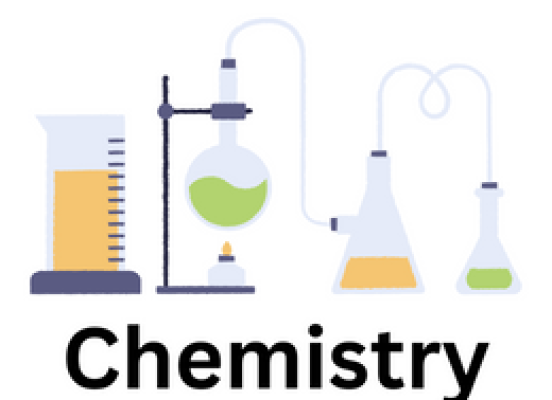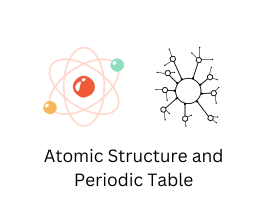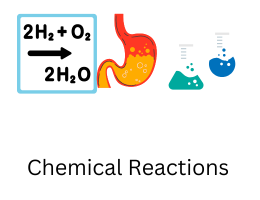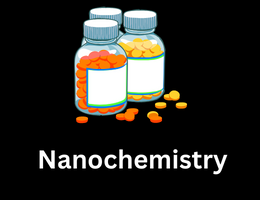
Exploring the Applications and Branches of Chemistry
- By admin --
- Saturday, 18 Mar, 2023
Chemistry is the scientific study of matter, its properties, composition, and reactions. It is a central science that connects many fields, and it has countless applications in various industries.
Here are some of the main applications, branches, and fields of studying chemistry:
1. Materials science:
Chemistry plays a crucial role in the study of materials science, which involves the development of new materials with specific properties. This field is essential in creating new materials for construction, electronics, and other applications. Materials science is a field that involves the development of new materials with specific properties. It encompasses the study of the structure, properties, and behavior of materials, such as metals, ceramics, polymers, and composites. This field is important in developing new materials that can be used in construction, electronics, aerospace, and other industries. For example, researchers in materials science are working to develop new lightweight and durable materials for use in electric vehicles, renewable energy systems, and space exploration.
2. Biochemistry:
Biochemistry is the study of chemical processes that occur within living organisms. It involves the study of proteins, nucleic acids, carbohydrates, and lipids, and the chemical reactions that they undergo. Biochemistry is a branch of chemistry that focuses on the chemical processes that occur within living organisms. It involves the study of proteins, nucleic acids, carbohydrates, and lipids, and the chemical reactions that they undergo. Biochemistry is critical in understanding the mechanisms of diseases and developing new treatments. For example, biochemists study enzymes, which are crucial in many biological processes, and develop drugs that can target specific enzymes to treat diseases.
3. Environmental chemistry:
Environmental chemistry is the study of chemical processes that occur in the environment, such as in soil, water, and air. It deals with the impact of human activities on the environment and the development of strategies to reduce or eliminate harmful pollutants. Environmental chemistry is the study of chemical processes that occur in the environment, such as in soil, water, and air. It deals with the impact of human activities on the environment and the development of strategies to reduce or eliminate harmful pollutants. Environmental chemists study the effects of pollutants on ecosystems, develop new methods for monitoring pollution, and work to develop new technologies for reducing pollution.
4. Analytical chemistry:
Analytical chemistry involves the identification and quantification of substances in a sample. This field is critical in industries such as pharmaceuticals, food, and environmental testing. Analytical chemistry involves the identification and quantification of substances in a sample. It encompasses a wide range of techniques, such as spectroscopy, chromatography, and electrochemistry. This field is critical in industries such as pharmaceuticals, food, and environmental testing. Analytical chemists work to develop new methods for analyzing substances, such as drugs in the bloodstream, pollutants in the environment, and nutrients in food.
5. Organic chemistry:
Organic chemistry is the study of carbon-based compounds, including their properties, reactions, and synthesis. This field is essential in the development of new drugs, polymers, and other organic materials. Organic chemistry is the study of carbon-based compounds, including their properties, reactions, and synthesis. This field is essential in the development of new drugs, polymers, and other organic materials. Organic chemists work to design new molecules with specific properties, develop new synthetic methods, and study the mechanisms of organic reactions.
6. Physical chemistry:
Physical chemistry is the study of the physical properties of chemicals, including thermodynamics, quantum mechanics, and kinetics. This field is critical in the design and optimization of chemical processes and reactions. Physical chemistry is the study of the physical properties of chemicals, including thermodynamics, quantum mechanics, and kinetics. This field is critical in the design and optimization of chemical processes and reactions. Physical chemists work to understand the fundamental principles that govern chemical reactions, develop new materials with specific properties, and optimize chemical processes to be more efficient and sustainable.
7. Inorganic chemistry:
Inorganic chemistry is the study of non-carbon-based compounds, including metals, minerals, and ceramics. It is important in industries such as manufacturing and electronics. Inorganic chemistry is the study of non-carbon-based compounds, including metals, minerals, and ceramics. It is important in industries such as manufacturing and electronics. Inorganic chemists work to develop new materials with specific properties, study the mechanisms of inorganic reactions, and optimize processes for the production of inorganic materials.
In conclusion, chemistry is a broad and multifaceted field with many applications and branches. It is a critical field for developing new technologies, understanding biological processes, and solving environmental problems.





